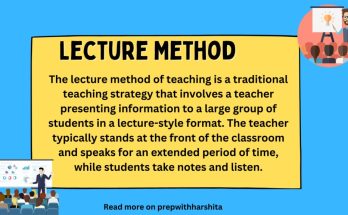In a rapidly evolving world, where the very nature of work is being reshaped by technological advancements and global interconnectedness, a crucial conversation is gaining momentum within educational circles: should schools place a greater emphasis on cultivating “soft skills”? While academic proficiency in subjects like mathematics, science, and literature remains undeniably important, there’s a growing consensus that these “hard skills” alone are insufficient to prepare students for the complexities of modern life, both personal and professional. The argument for a stronger focus on soft skills—encompassing communication, collaboration, critical thinking, adaptability, and emotional intelligence—is compelling, driven by the demands of the future workforce and the imperative to nurture well-rounded, resilient individuals.
For decades, the traditional educational model has largely prioritized the acquisition of factual knowledge and the mastery of specific, quantifiable academic subjects. Success was often measured by test scores and grades, which are indicators of a student’s ability to absorb and recall information. However, employers across industries are increasingly vocal about a significant gap between what graduates know and what they can actually *do* in a collaborative, dynamic work environment. They report that while new hires might possess impressive technical expertise, they often lack the interpersonal acumen, problem-solving agility, or communication prowess necessary to thrive. This disconnect underscores the urgent need for schools to broaden their educational mandate beyond purely academic content.
Consider the skill of communication. It’s not enough for a student to write a grammatically perfect essay; they must also be able to articulate their ideas clearly and persuasively in a group discussion, listen actively to diverse perspectives, and present information effectively to a varied audience. These are the nuances of communication that are indispensable in any career, from a software engineer collaborating on a complex project to a healthcare professional interacting with patients and colleagues. Similarly, collaboration, often practiced through group projects, teaches students how to negotiate, compromise, leverage individual strengths, and collectively solve problems—skills that are foundational to teamwork in virtually every modern workplace. Without these abilities, even the most brilliant individual contributor can struggle within an organizational structure.
Critical thinking, often cited as a cornerstone soft skill, extends far beyond rote memorization. It involves the ability to analyze information, discern fact from opinion, evaluate arguments, and generate innovative solutions to complex, ill-defined problems. In an age of information overload and pervasive misinformation, the capacity to think critically is not just a professional asset but a civic necessity. Schools can cultivate this by moving beyond traditional lecturing to embrace inquiry-based learning, debates, and open-ended problem-solving scenarios that challenge students to think deeply and independently.
Furthermore, adaptability and resilience are perhaps more crucial now than ever before. The pace of change in the world is accelerating, driven by technological disruption and shifting global dynamics. Students entering the workforce today will likely encounter multiple career changes and need to continuously learn new skills throughout their lives. Schools that prioritize adaptability equip students to embrace uncertainty, pivot when necessary, and bounce back from setbacks, fostering a “growth mindset” that views challenges as opportunities for learning rather than insurmountable obstacles. This psychological fortitude is invaluable for navigating the inevitable ups and downs of any career path.
The challenge, of course, lies in how to effectively integrate these “less tangible” skills into an already packed curriculum. Soft skills cannot typically be taught through traditional lectures or assessed with standardized tests. Instead, their development is best nurtured through experiential learning, project-based activities, interdisciplinary approaches, and a pervasive school culture that values collaboration, open communication, and problem-solving. This might involve teachers facilitating group discussions, incorporating peer feedback into assignments, creating opportunities for students to lead and manage projects, and designing tasks that require creative solutions to real-world problems. It also necessitates professional development for educators, equipping them with the pedagogical strategies to foster these skills.
While there might be initial resistance or logistical hurdles in shifting the educational focus, the long-term benefits are clear. Students who graduate with strong soft skills are not only more employable and better prepared for the demands of higher education, but they are also more capable citizens, equipped to navigate complex social interactions, contribute meaningfully to their communities, and adapt to an ever-changing world. By recognizing that customer service, teamwork, and innovative problem-solving are just as vital as calculus or chemistry, schools can ensure they are truly preparing the next generation not just to *know* things, but to *do* things, to connect with others, and to thrive in the multifaceted tapestry of modern life. This broader, more holistic approach to education isn’t a deviation from academic excellence; it’s an essential evolution towards it.




